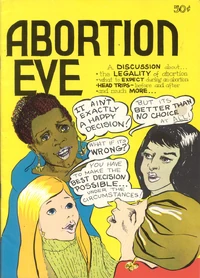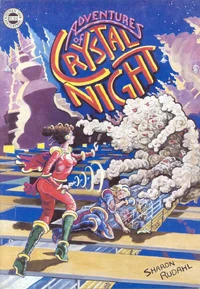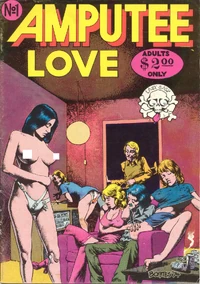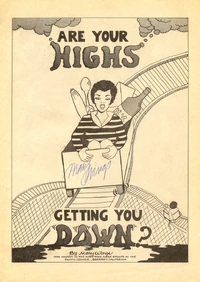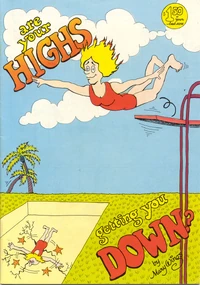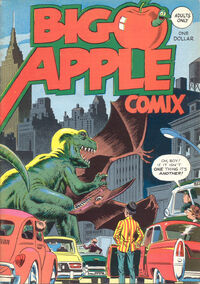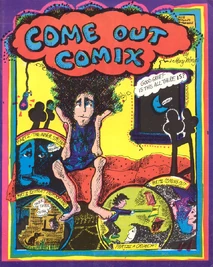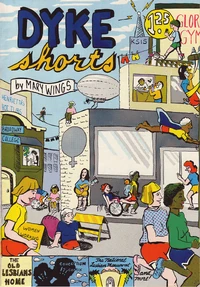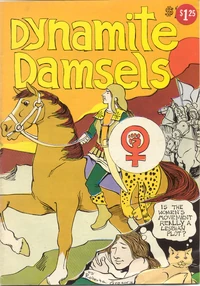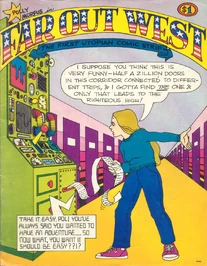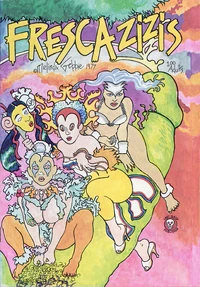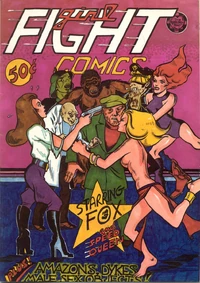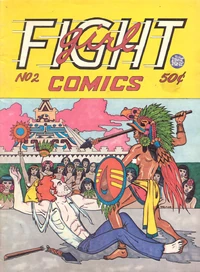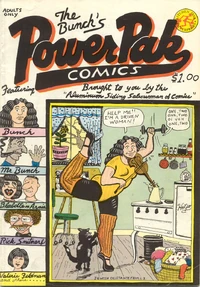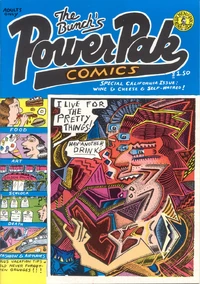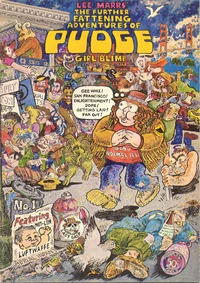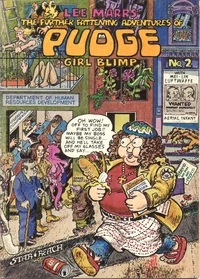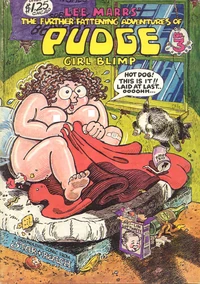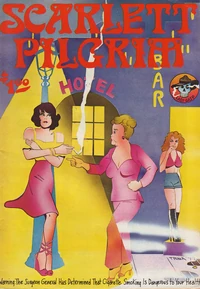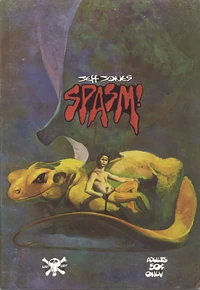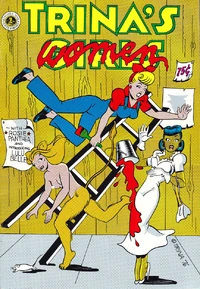While many underground comix by women took the form of anthologies by three or more creators, many more were by one or two women. The major underground publishers included Apex Novelties, Kitchen Sink Press, Last Gasp, The Print Mint, and Rip-Off Press, though self-publishing was also common.
A[]
- Abortion Eve by Joyce Farmer and Lyn Chevli (Nanny Goat Productions, 1973): a pro-choice comic published not long after Roe v. Wade legalized abortion-on-demand in the United States. A dialogue between three women from different backgrounds discussing why they were considering abortion and various contraception methods.
- Adventures of Crystal Night by Sharon Rudahl (Kitchen Sink, 1980): A feminist dystopian sci-fi story.
- Amputee Love co-created by Rene (Irene) Jensen (Last Gasp, 1975): A raunchy tale of love and sex between two amputees, created by a couple who were both amputees. A ground-breaking depiction of persons with disabilities from their point of view.
- Are Your Highs Getting You Down? by Mary Wings (self-published (first printing), 1980; Last Gasp (second printing), 1981): A collection of stories of women's substance abuse and recovery, based on experiences by women in two Berkeley, California support groups.
B[]
- Big Apple Comix edited by Flo Steinberg (Big Apple Comix, 1975). Edited by legendary Marvel receptionist Flo Steinberg, this comic is considered a transitional work between "underground" and "alternative" comics. Less risqué than most underground comics and featuring many mainstream comics creators, as well as former EC Comics creators who had inspired so many underground cartoonists in the first place.
C[]
- Come Out Comix by Mary Wings (self-published, 1973; Portland's Women Resource Center, 1974, 1977): The first comic book by a lesbian about the lesbian experience. Wings was driven to create this comic after the straight Trina Robbins created a story about her lesbian roommate's coming out for Wimmen's Comix, Issue 1; Wings was determined to tell a lesbian's story in a lesbian voice. Excerpts were reprinted in No Straight Lines: Four Decades of Queer Comics (Fantagraphics, 2013)
D[]
- Dyke Shorts by Mary Wings (The Print Mint, 1978): Wings's follow-up to Come Out Comix. Mostly autobiographical.
- Dynamite Damsels by Roberta Gregory (self-published, 1976): A combination of both autobiographical and fantasy stories about the lesbian experience. Believed to be the first standard-sized comic book created entirely by one woman. Available free online at the Queer Zine Archive Project.
F[]
- Far Out West by Eve Furchgott aka Even Eve (Performing Arts Social Society, 1975): Billed as "The First Utopian Comic Strip", about a young woman on a vision quest, led by a supercomputer, for the ultimate high.
- Fresca Zizis by Melinda Gebbie (Last Gasp, 1977): The title means "fresh cocks" in Italian. When it was imported into the United Kingdom in 1985, it was seized by customs and subsequently ruled obscene. It is still illegal to possess in the UK.
G[]
- Girl Fight Comics #1 & #2 by Trina Robbins (Last Gasp, 1972 & 1984): Title and logo inspired by Fiction House's Fight Comics, which published women creators' work during the Golden Age.
I[]
- Illuminations by Willy Mendes (The Print Mint, 1971): A psychedelic anthology which also features work by Trina Robbins and Julie Wood, plus a number of men.
P[]
- Power Pak Comics #1 & #2 by Aline Kominsky-Crumb (Kitchen Sink Press, 1979 & 1981): Among the first of the autobiographical, slice-of-life genre.
- Pudge, Girl Blimp #1-3 by Lee Marrs (#1: Last Gasp, 1973; #2-3: Star*Reach, 1975-78): The quest of an overweight, unbeknownst Martian on Earth to lose her virginity.
S[]
- Scarlett Pilgrim by Trina Robbins (Last Gasp, 1977): Inspired by sex workers' rights activist Margo St. James, about a prostitute recruited for a sting operation by the CIA.
- Spasm by Jeffrey Catherine Jones
T[]
- Trina's Women by Trina Robbins
